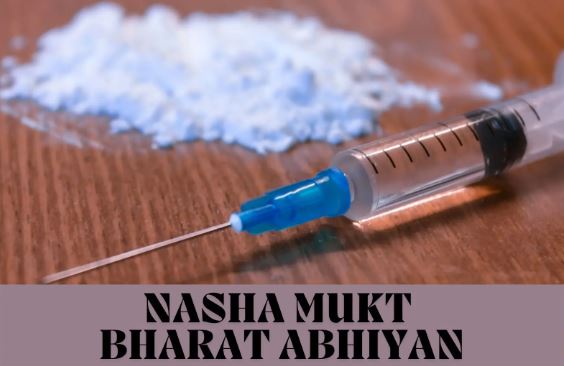Nasha Mukt Bharat Abhiyan: Harnessing Ayurveda, Yoga, and Spirituality for a Healthier India
DOI:
https://doi.org/10.21760/jaims.10.4.1Keywords:
Drug-Free India Campaign, Nasha Mukt Bharat Abhiyan, Nashamukti Abhiyan, Ayurveda and de-addiction, Panchakarma detoxification, Rasayana therapy, Medhya Rasayana, Satvavajaya Chikitsa, Mind-body balanceAbstract
The Drug-Free India Campaign (Nashamukti Abhiyan) is a transformative initiative aimed at eradicating substance abuse in India. Given the alarming rise in drug addiction, particularly among youth, this movement integrates Ayurveda, Yoga, and Spirituality to offer a holistic path to recovery. Conventional de-addiction treatments often focus on withdrawal symptoms and rehabilitation, but Ayurveda provides a sustainable approach by addressing the root causes of addiction, detoxifying the body, and restoring mental balance. Therapies like Panchakarma, Rasayana (rejuvenation therapy), and Medhya Rasayana (cognitive enhancement) help eliminate toxins, rebuild strength, and improve emotional resilience. Yoga plays a crucial role in recovery, enhancing physical well-being, emotional stability, and self-discipline. Specific yogic practices, such as Pranayama (breathing techniques) and meditation, help addicts regain mental clarity and resist cravings. Additionally, Satvavajaya Chikitsa, a psychological and spiritual therapy in Ayurveda, helps individuals overcome addiction through self-awareness, mental fortitude, and community support. By integrating these ancient healing sciences into the Drug-Free Bharat Abhiyan, a more sustainable and effective model for de-addiction can be established. To ensure long-term success, efforts must include awareness campaigns, government support, community participation, and dedicated rehabilitation centres that combine Ayurvedic and yogic therapies. A drug-free India is achievable, but it demands collective responsibility and action. By embracing Ayurveda’s wisdom, spiritual teachings, and yogic discipline, India can reclaim its purity and offer a healthier future for generations to come.
Downloads
References
Government of India. Nasha Mukt Bharat Abhiyaan [Internet]. National Portal of India; 2024. Available from: https://www.india.gov.in/spotlight/nasha-mukt-bharat-abhiyaan
Ministry of Social Justice & Empowerment. Home | Nasha Mukt Bharat Abhiyaan [Internet]. Government of India; 2024. Available from: https://nmba.dosje.gov.in/
MyGov India. Nasha Mukt Bharat Abhiyan | MyGov.in [Internet]. Government of India; 2024. Available from: https://www.mygov.in/campaigns/nasha-mukt-bharat-abhiyan/
Shukla R. De-addiction methods in Ayurveda. Int Ayurvedic Med J [Internet]. 2024. Available from: https://iamj.in/current_issue/images/upload/1671_1675.pdf
Porte SM, Malviya A. Drug addiction and Ayurvedic method of de-addiction. J Res Educ Indian Med [Internet]. 2015. Available from: https://www.jreim-ayushjournal.com/fulltext/82-1435295257.pdf
The Ayurvedic Institute. Introduction to Panchakarma Treatment [Internet]. 2024. Available from: https://ayurveda.com/introduction-to-panchakarma/
Deshpande M. Understanding Rasayana Therapy in Ayurveda: A Comprehensive Guide [Internet]. Kalpataru Ayurveda; 2024. Available from: https://www.kalpataru-ayurved.com/rasayana-therapy-in-ayurveda
Ayur Times. Medhya Rasayana (Nootropic & Cognitive Enhancers) [Internet]. 2019. Available from: https://www.ayurtimes.com/medhya-rasayana-nootropic-herbs-cognitive-enhancers/
Nayak B. Satvavajaya Chikitsa: The Ancient Ayurvedic Mind-Body Healing Technique [Internet]. Dr. Brahmanand Nayak; 2024. Available from: https://www.drbrahma.com/satvavajaya-chikitsa-the-ancient-ayurvedic-mind-body-healing-technique-getting-new-attention/
Vibrant Yoga. Transforming Lives: The Power of Yoga for Addiction Recovery [Internet]. 2023. Available from: https://vibrant.yoga/blog/yoga-for-addiction/
Healthline. Pranayama Benefits for Physical and Emotional Health [Internet]. 2024. Available from: https://www.healthline.com/health/pranayama-benefits
Loner Wolf. 5 Types of Spiritual Healing (& What to Be Careful Of) [Internet]. 2025. Available from: https://lonerwolf.com/spiritual-healing/















